Citric Acid Home Cleaning Tips: Unlock the sparkling potential of your home with this all-natural powerhouse! Are you tired of harsh chemicals and their lingering odors? Do you dream of a clean, fresh home without breaking the bank? Well, you’re in the right place! I’m about to share some amazing DIY secrets using something you probably already have in your kitchen: citric acid.
Citric acid, derived from citrus fruits like lemons and limes, has been used for centuries, not just in cooking, but also for its incredible cleaning properties. Think back to your grandmother’s cleaning rituals – chances are, she knew a thing or two about the power of lemon juice! This natural acid acts as a fantastic disinfectant, deodorizer, and stain remover, making it a versatile and eco-friendly alternative to commercial cleaners.
In today’s world, we’re all becoming more conscious of the products we use in our homes. Many commercial cleaners are packed with chemicals that can be harmful to our health and the environment. That’s where citric acid home cleaning tips come in! I’m going to show you how to harness the power of this natural ingredient to tackle everything from stubborn hard water stains to grimy kitchen surfaces. Get ready to ditch the harsh chemicals and embrace a cleaner, healthier, and more sustainable way to keep your home sparkling!
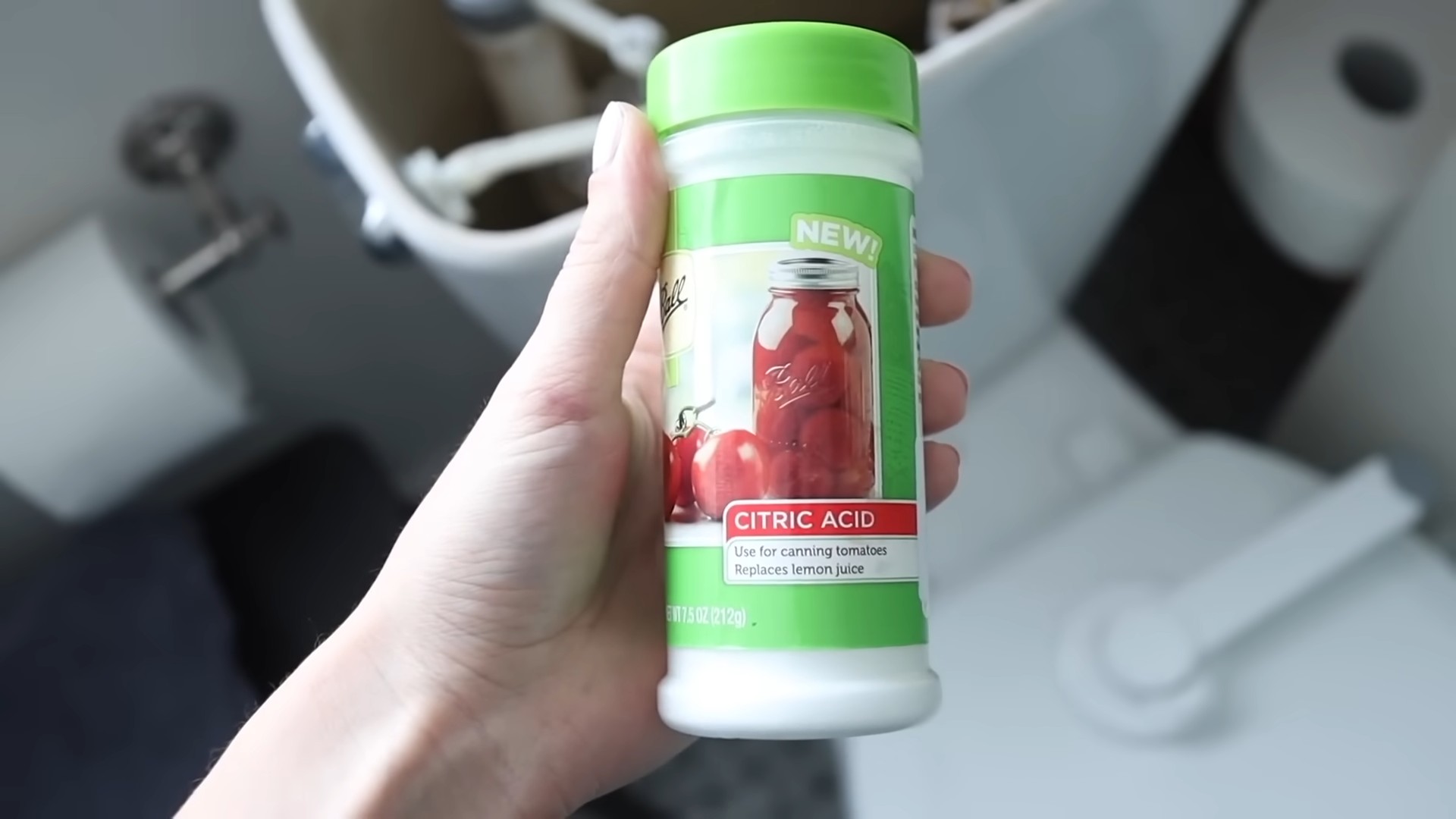
Citric Acid: Your New Best Friend for a Sparkling Home
Okay, let’s talk cleaning! I know, it’s not everyone’s favorite topic, but trust me, this is going to make it a whole lot easier – and cheaper! We’re diving into the wonderful world of citric acid and how you can use it to tackle a ton of cleaning tasks around your house. Forget those harsh chemicals and expensive cleaners; citric acid is natural, effective, and surprisingly versatile. I’ve been using it for ages, and I’m excited to share all my tips and tricks with you.
What is Citric Acid, Anyway?
Citric acid is a naturally occurring acid found in citrus fruits like lemons and limes. You can buy it in powdered form, usually in the baking or canning section of your grocery store, or online. It’s food-grade, so it’s safe to use around your kitchen and even in your dishwasher. It’s a fantastic descaler, deodorizer, and all-around cleaning powerhouse.
Why I Love Citric Acid for Cleaning
* It’s Natural: I feel so much better using something derived from nature rather than harsh chemicals.
* It’s Effective: Seriously, it cuts through grime, hard water stains, and soap scum like a champ.
* It’s Affordable: A bag of citric acid goes a long way and costs way less than most specialty cleaners.
* It’s Versatile: You can use it for so many different cleaning tasks!
* It’s Odorless: Unlike vinegar, it doesn’t leave a lingering smell.
Getting Started: Safety First!
While citric acid is natural, it’s still an acid, so you need to be careful.
* Wear Gloves: Protect your hands, especially if you have sensitive skin.
* Avoid Contact with Eyes: If you get it in your eyes, rinse immediately with plenty of water.
* Don’t Mix with Bleach: This is a big one! Mixing citric acid with bleach can create dangerous chlorine gas.
* Test on a Small Area: Before using it on a large surface, test it on a small, inconspicuous area to make sure it doesn’t damage the material. This is especially important for delicate surfaces like marble or granite.
Cleaning with Citric Acid: Step-by-Step Guides
Okay, now for the fun part! Here are some of my favorite ways to use citric acid for cleaning:
1. Descaling Your Kettle or Coffee Maker
Hard water can leave mineral deposits in your kettle and coffee maker, affecting their performance and the taste of your drinks. Citric acid is perfect for removing these deposits.
You’ll need:
* 1-2 tablespoons of citric acid
* Water
Instructions:
1. Prepare the Solution: Fill your kettle or coffee maker with water. Add 1-2 tablespoons of citric acid, depending on how much scale you have. I usually start with 1 tablespoon and add more if needed.
2. Boil or Run the Cycle: For a kettle, boil the solution. For a coffee maker, run a full brewing cycle.
3. Let it Sit: After boiling or running the cycle, let the solution sit in the kettle or coffee maker for about 30 minutes to an hour. This allows the citric acid to really break down the mineral deposits.
4. Rinse Thoroughly: Pour out the solution and rinse the kettle or coffee maker several times with clean water until all traces of citric acid are gone.
5. Boil/Run Again with Clean Water: As a final step, boil water in the kettle or run a brewing cycle with just water to ensure any remaining citric acid is completely flushed out.
2. Cleaning Your Dishwasher
Dishwashers can get grimy and smelly over time. Citric acid helps to remove food residue, hard water stains, and odors.
You’ll need:
* 2-3 tablespoons of citric acid
Instructions:
1. Empty the Dishwasher: Make sure your dishwasher is completely empty.
2. Add Citric Acid: Pour 2-3 tablespoons of citric acid into the detergent dispenser.
3. Run a Hot Cycle: Run the dishwasher on a hot cycle. I usually use the normal or heavy-duty cycle.
4. Optional: For extra cleaning power, you can also sprinkle a tablespoon of citric acid on the bottom of the dishwasher before running the cycle.
5. Repeat if Necessary: If your dishwasher is particularly dirty, you may need to repeat the process.
3. Removing Hard Water Stains from Showerheads and Faucets
Hard water stains can make your showerheads and faucets look dull and grimy. Citric acid can dissolve these stains and restore their shine.
You’ll need:
* 1/4 cup of citric acid
* 1 cup of hot water
* Spray bottle or bowl
* Cloth or sponge
Instructions:
1. Prepare the Solution: Dissolve 1/4 cup of citric acid in 1 cup of hot water.
2. Apply the Solution: Pour the solution into a spray bottle or bowl. Spray the solution directly onto the showerhead and faucets, or soak a cloth or sponge in the solution and wipe the surfaces.
3. Let it Sit: Let the solution sit for about 15-30 minutes. For stubborn stains, you may need to let it sit longer.
4. Scrub Gently: Use a cloth or sponge to gently scrub the surfaces.
5. Rinse Thoroughly: Rinse the showerhead and faucets thoroughly with clean water.
6. Dry: Dry the surfaces with a clean cloth.
4. Cleaning Your Toilet Bowl
Citric acid can help remove stains and mineral deposits from your toilet bowl, leaving it sparkling clean.
You’ll need:
* 1/4 cup of citric acid
Instructions:
1. Sprinkle Citric Acid: Sprinkle 1/4 cup of citric acid into the toilet bowl.
2. Let it Sit: Let it sit for at least 30 minutes, or even overnight for tough stains.
3. Scrub: Use a toilet brush to scrub the bowl thoroughly.
4. Flush: Flush the toilet.
5. Making an All-Purpose Cleaner
I love making my own all-purpose cleaner with citric acid. It’s so easy and effective!
You’ll need:
* 1 teaspoon of citric acid
* 1 cup of water
* Spray bottle
* Optional: A few drops of your favorite essential oil (like lemon, lavender, or tea tree)
Instructions:
1. Combine Ingredients: Pour the water into a spray bottle. Add the citric acid and essential oil (if using).
2. Shake Well: Shake the bottle well to dissolve the citric acid.
3. Use as Needed: Spray the cleaner onto surfaces and wipe clean with a cloth or sponge.
Where to Use: This all-purpose cleaner is great for countertops, sinks, appliances, and other surfaces. Just remember to test it on a small area first, especially on delicate surfaces.
6. Removing Rust Stains
Citric acid is a fantastic rust remover!
You’ll need:
* 1/2 cup of citric acid
* 1 cup of hot water
* Container or bowl
* Cloth or sponge
Instructions:
1. Prepare the Solution: Dissolve 1/2 cup of citric acid in 1 cup of hot water.
2. Soak or Apply: For small items, soak them in the solution for a few hours or overnight. For larger items or surfaces, apply the solution with a cloth or sponge and let it sit for several hours.
3. Scrub: Scrub the rust stain with a brush or sponge.
4. Rinse Thoroughly: Rinse the item or surface thoroughly with clean water.
5. Dry: Dry the item or surface with a clean cloth.
7. Cleaning Burnt Food from Pots and Pans
Accidentally burnt dinner again? Don’t worry, citric acid can help!
You’ll need:
* 1-2 tablespoons of citric acid
* Water
Instructions:
1. Fill the Pot/Pan: Fill the burnt pot or pan with enough water to cover the burnt food.
2. Add Citric Acid: Add 1-2 tablespoons of citric acid.
3. Boil: Bring the water to a boil and let it simmer for about 15-30 minutes.
4. Let it Cool: Let the water cool slightly.
5. Scrub: Use a sponge or scrub brush to remove the burnt food. It should come off much easier now
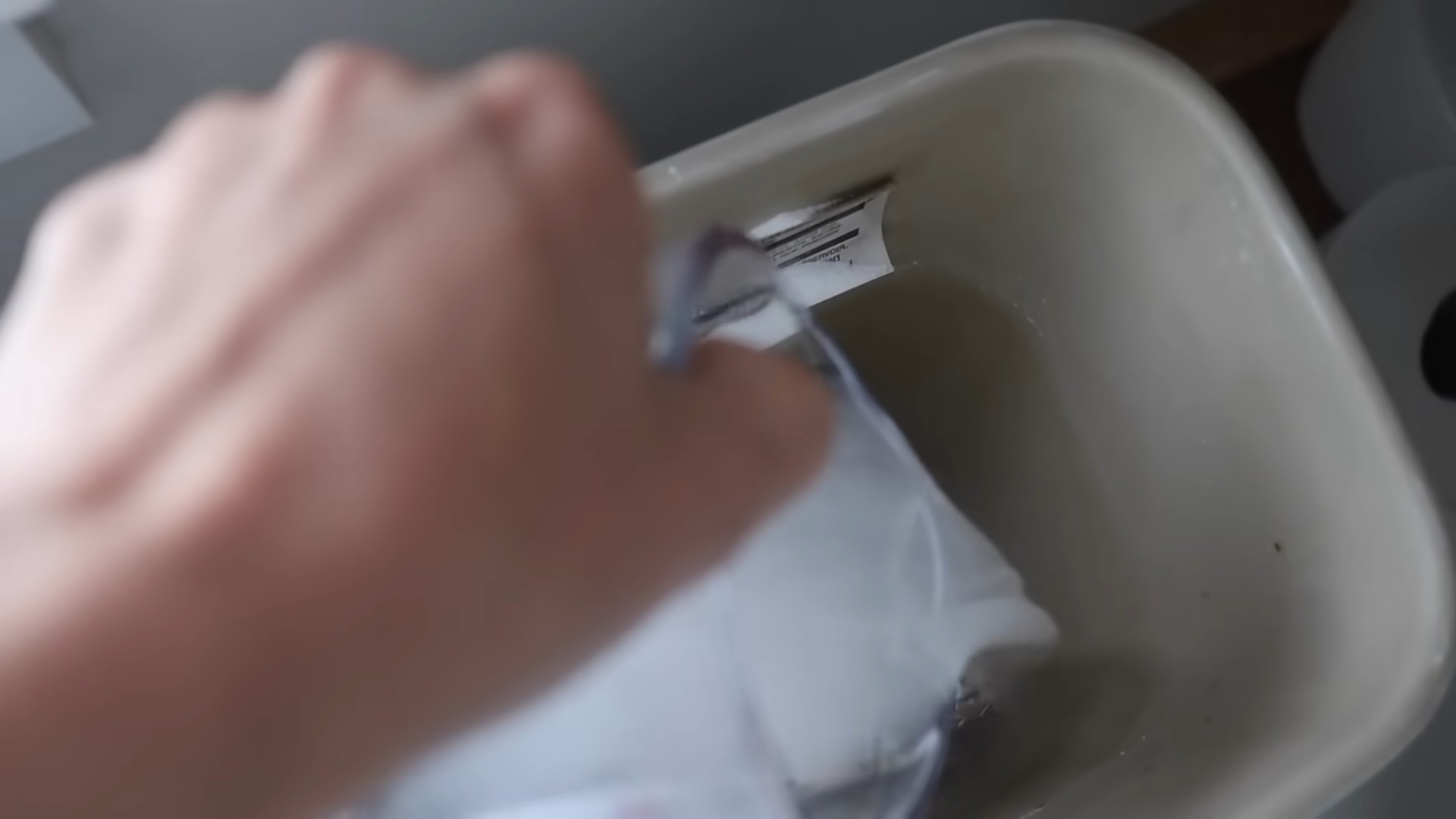
Conclusion
So, there you have it! Embracing the power of citric acid for your home cleaning needs is not just a trend; it’s a smart, effective, and eco-conscious choice. We’ve explored how this readily available, naturally derived ingredient can tackle everything from stubborn hard water stains to grimy soap scum, leaving your home sparkling and fresh without the harsh chemicals often found in commercial cleaners.
Why is this DIY citric acid cleaning trick a must-try? Because it offers a trifecta of benefits: it’s cost-effective, environmentally friendly, and incredibly versatile. Think about it: instead of buying multiple specialized cleaning products, you can rely on a single, potent solution that’s gentle on your surfaces and your wallet. Plus, you’re reducing your exposure to potentially harmful chemicals and contributing to a healthier planet. That’s a win-win-win!
But the beauty of DIY cleaning lies in its adaptability. Feel free to experiment with different concentrations of citric acid solution to find what works best for your specific needs. For instance, for heavily soiled areas like oven interiors, you might want to create a more concentrated paste. Conversely, for delicate surfaces like marble, a diluted spray is the way to go. You can also enhance your cleaning solutions with essential oils like lemon, lavender, or tea tree for added fragrance and antibacterial properties. Imagine the invigorating scent of lemon filling your bathroom as you effortlessly wipe away grime!
Another fantastic variation is to combine citric acid with baking soda for a powerful fizzing action that helps loosen stubborn dirt and debris. Just be sure to use this mixture in well-ventilated areas and avoid using it on delicate surfaces that could be scratched.
Citric acid home cleaning is not just about getting your house clean; it’s about making a conscious choice to prioritize your health, your budget, and the environment. It’s about taking control of the products you use in your home and embracing a more sustainable lifestyle.
We’re confident that once you experience the cleaning prowess of citric acid, you’ll be hooked. It’s a game-changer that simplifies your cleaning routine and delivers impressive results.
So, what are you waiting for? Grab some citric acid, mix up a batch of your own cleaning solution, and prepare to be amazed. We encourage you to try these DIY cleaning tips and share your experiences with us! Let us know what worked best for you, any variations you tried, and the sparkling results you achieved. Your insights could inspire others to embrace the power of citric acid and create a cleaner, healthier home. Share your before and after photos, your favorite cleaning hacks, and any questions you might have. Let’s build a community of eco-conscious cleaners who are passionate about making a difference, one sparkling surface at a time. We can’t wait to hear from you!
Frequently Asked Questions (FAQs)
What exactly is citric acid, and is it safe to use around my family and pets?
Citric acid is a naturally occurring organic acid found in citrus fruits like lemons, limes, and oranges. It’s widely used in the food industry as a preservative and flavoring agent. When used for cleaning, it’s generally considered safe for families and pets, especially compared to harsh chemical cleaners. However, it’s always a good idea to keep cleaning solutions out of reach of children and pets. While citric acid is non-toxic, ingestion of concentrated solutions can cause stomach upset. If you have pets that are prone to licking surfaces, rinse thoroughly after cleaning. As with any cleaning product, it’s best to test a small, inconspicuous area first to ensure it doesn’t damage the surface.
Can I use citric acid on all surfaces in my home? Are there any surfaces I should avoid?
While citric acid is versatile, it’s not suitable for all surfaces. Avoid using it on natural stone surfaces like marble, granite, and limestone, as it can etch or dull the finish. It’s also best to avoid using it on aluminum, as it can cause corrosion. Always test a small, hidden area before applying it to a larger surface. Safe surfaces generally include stainless steel, porcelain, ceramic tile, glass, plastic, and sealed wood. When in doubt, err on the side of caution and use a milder cleaning solution.
What’s the best way to store my homemade citric acid cleaning solution?
Store your homemade citric acid cleaning solution in a clean, labeled spray bottle or container. Keep it out of direct sunlight and away from heat sources. It’s best to use a dark-colored bottle to protect the solution from light degradation. Be sure to label the bottle clearly with the contents and date of preparation. While citric acid solutions are generally stable, it’s best to use them within a few months for optimal effectiveness.
How do I make a basic citric acid cleaning solution, and what concentration should I use for different cleaning tasks?
A basic citric acid cleaning solution can be made by dissolving citric acid powder in water. A common starting point is to use 1-2 tablespoons of citric acid powder per cup of water. For general cleaning tasks like wiping down countertops and cleaning bathroom fixtures, a 1-2% solution (1 tablespoon per cup of water) is usually sufficient. For tougher stains and grime, you can increase the concentration to 5-10% (2 tablespoons per cup of water). For descaling appliances like kettles and coffee makers, you can use a stronger solution of up to 20% (4 tablespoons per cup of water). Always start with a lower concentration and increase it as needed.
Can I use citric acid to clean my dishwasher and washing machine?
Yes, citric acid is an excellent natural descaler for dishwashers and washing machines. To clean your dishwasher, add about 1/2 cup of citric acid powder to the bottom of the empty dishwasher and run a normal cycle. For washing machines, add about 1/4 cup of citric acid powder to the detergent dispenser and run an empty cycle on hot. This will help remove mineral buildup and soap scum, leaving your appliances clean and fresh.
Where can I purchase citric acid powder?
Citric acid powder is readily available at most grocery stores, health food stores, and online retailers. Look for it in the baking or canning section of your local grocery store. You can also find it on websites like Amazon and other online retailers that sell cleaning supplies and food additives.
Is there a difference between citric acid and lemon juice for cleaning purposes?
While both citric acid and lemon juice contain citric acid, citric acid powder is a more concentrated and pure form. Lemon juice also contains other compounds like sugars and oils that can leave a sticky residue. For cleaning purposes, citric acid powder is generally more effective and easier to use. However, if you don’t have citric acid powder on hand, you can use lemon juice as a substitute, but you may need to use a larger amount and rinse more thoroughly.
Can I mix citric acid with other cleaning ingredients like bleach or vinegar?
No, it’s generally not recommended to mix citric acid with other cleaning ingredients like bleach or vinegar. Mixing citric acid with bleach can create harmful chlorine gas, which is toxic and can cause respiratory problems. Mixing citric acid with vinegar can neutralize the acidity of both substances, making them less effective for cleaning. It’s best to use citric acid on its own or with water and essential oils.
How can I use citric acid to remove hard water stains from my showerhead and faucets?
To remove hard water stains from your showerhead and faucets, you can soak them in a citric acid solution. Remove the showerhead and faucet aerator and soak them in a solution of 1/4 cup citric acid powder per cup of hot water for about 30 minutes to an hour. For faucets that can’t be removed, you can soak a cloth in the citric acid solution and wrap it around the faucet, securing it with a rubber band. Let it sit for about an hour, then rinse thoroughly with water.
What are some other creative uses for citric acid in my home besides cleaning?
Besides cleaning, citric acid has several other creative uses in your home. You can use it to make bath bombs, as a natural food preservative, to adjust the pH of your garden soil, and to remove rust stains from clothing. It’s a versatile ingredient that can be used in many different ways.

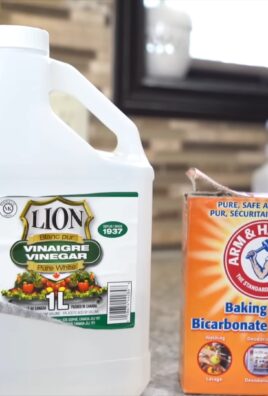
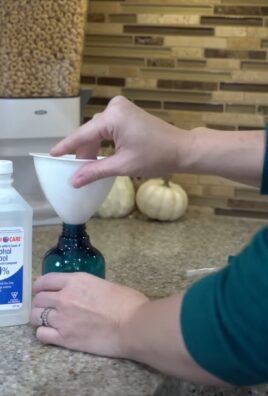
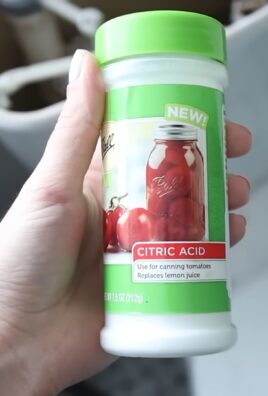
Leave a Comment